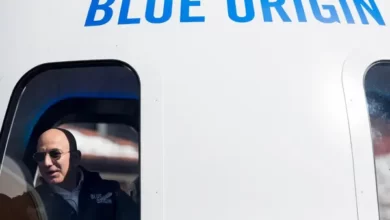Jeff Bezos’ leadership at Amazon: How he balances innovation and profitability
Jeff Bezos is one of the most successful and influential business leaders of our time, having founded Amazon, one of the largest and most profitable companies in the world. Bezos has been a trailblazer in the world of e-commerce and online retail, and has led Amazon to become a global powerhouse. However, Bezos’ leadership style and his approach to balancing innovation and profitability have been a topic of much debate. In this article, we will explore Bezos’ leadership style and how he has managed to balance innovation and profitability at Amazon.
Jeff Bezos’ Leadership Style
Bezos is known for his intense focus on customer satisfaction and his ability to innovate and take risks. Bezos has been quoted as saying, “We’re not competitor-focused, we’re customer-focused. We start with what the customer needs and we work backwards.” This customer-centric approach has been the foundation of Amazon’s success, and has enabled the company to disrupt traditional retail models and dominate the online marketplace.
Bezos is also known for his willingness to take risks and his ability to innovate. He has been the driving force behind Amazon’s expansion into new markets and the development of new products and services. Bezos has been quoted as saying, “I’m willing to be misunderstood for long periods of time,” which speaks to his willingness to take risks and pursue new ideas, even when they are not immediately popular or well-received.
Bezos’ leadership style has also been criticized for being aggressive and demanding. Bezos has been known to set extremely high standards for himself and his employees, and has been described as a micromanager who closely monitors every aspect of the business. Some former employees have even described Amazon’s work environment as cut-throat and unforgiving, with little room for error or failure.
Balancing Innovation and Profitability
One of the key challenges facing any business leader is how to balance innovation and profitability. Innovation is essential for long-term growth and success, but it often requires significant investments of time and resources. Profitability, on the other hand, is essential for short-term survival and stability, and is often the primary focus of investors and shareholders.
At Amazon, Bezos has managed to balance innovation and profitability by focusing on long-term goals and investing heavily in new technologies and services. Amazon has consistently reinvested its profits into new initiatives, such as the development of Amazon Web Services (AWS), which has become one of the company’s most profitable businesses.
Bezos has also been willing to take risks and pursue new ideas, even when they are not immediately profitable. For example, Amazon’s investment in the development of the Kindle e-reader was a significant risk, but it ultimately paid off and helped to establish Amazon as a leader in the e-book market.
To investing in new initiatives, Bezos has also focused on improving Amazon’s operational efficiency and reducing costs. This has enabled the company to remain profitable while also investing in new initiatives and innovation. Amazon’s use of automation and robotics in its fulfillment centers, for example, has helped to reduce costs and improve efficiency.
The Impact of Bezos’ Leadership at Amazon
Under Bezos’ leadership, Amazon has become one of the largest and most successful companies in the world. The company’s market capitalization has grown from less than $1 billion in 1997 to more than $1 trillion in 2021. Amazon’s success has had a profound impact on the retail industry and has forced traditional retailers to adapt to the changing marketplace.
Bezos’ leadership has also had a significant impact on the tech industry as a whole. Amazon Web Services, which was launched in 2006, has become the dominant player in the cloud computing market, with a market share of more than 30%. AWS has been a major driver of Amazon’s profitability and has helped to establish the company as a leader in the tech industry.
Bezos’ willingness to take risks and pursue new ideas has also had a ripple effect throughout the tech industry. Many startups and established companies have been inspired by Amazon’s success and have adopted a similar approach to innovation and risk-taking.
Challenges and Criticisms
Despite Bezos’ many successes, his leadership at Amazon has not been without its challenges and criticisms. As previously mentioned, Bezos’ aggressive leadership style has been criticized for creating a toxic work environment. In addition, Amazon has faced criticism over issues such as labor practices and its impact on small businesses.
Bezos has also faced criticism over his personal wealth and his role in widening income inequality. In 2018, Bezos’ net worth surpassed $100 billion, making him the richest person in the world. Critics have argued that Amazon’s success has come at the expense of workers and small businesses, and that Bezos’ personal wealth is a reflection of these inequalities.



